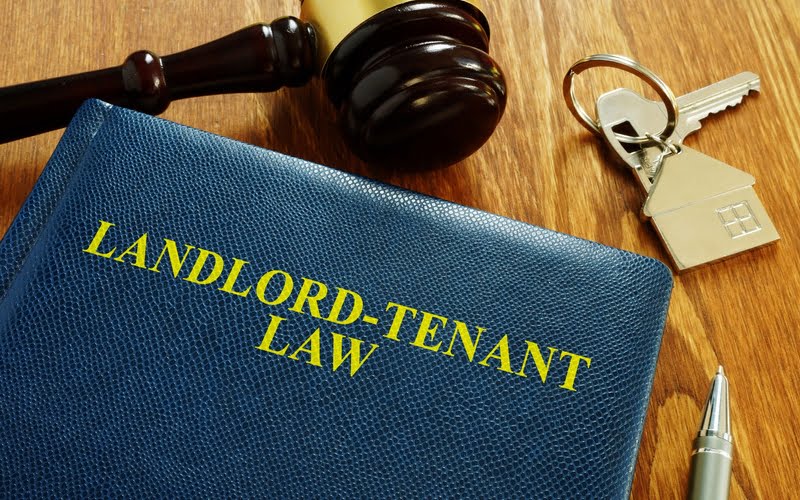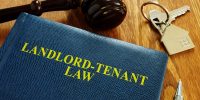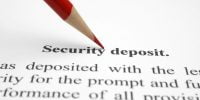Last Updated on November 9, 2021 by Kelvin Nielsen
After a long and tiresome search, you have finally found an apartment that ticks all the boxes. What remains now is reaching out to the landlord, filling out the rental application, and hoping to be accepted.
While first-time renters may find the application process complicated, it doesn’t have to be if you know the required information beforehand. Generally speaking, landlords will want documents verifying your identity, employment status, and financial stability. Besides, they’ll want to see your renting history as well as your criminal background.
Knowing this in advance can be a big head start for you. Let’s dig deeper!
1. Proof of Identification
First and foremost, you will have to present documents that verify your identity. Such documents include a state ID, driver’s license, or passport. These documents will be proof of your citizenship and that you are who you claim to be. If you are a non-US citizen, you can bring documents such as a 1040-NR or nonresident alien income tax return.
2. Your Employment Information
It’s no secret that landlords want to steer clear of unemployed tenants. Such tenants are not so reliable when it comes to paying rent and fulfilling other rental obligations. Owing to this, a landlord will want to ascertain that you have a steady income source before renting a house to you. Depending on the nature of your job, a landlord can ask for your:
- Pay stubs or payslips. You will need to provide payslips or stubs if you work with a company that pays monthly. By seeing how much you earn, the landlord will establish whether or not you’re a viable tenant.
- Bank statements. If you run a business or are self-employed, you’ll have to show three of your most recent bank statements. The landlord, here, will be interested in the transactions you make and your account balance as well. This way, they will gauge your financial ability and decide whether or not to rent you. You might also have to hand in your bank statements if you are unemployed, retired, or a full-time student. The landlord will check the statements to see any amount deposited in your bank account.
3. Your Renting History
A landlord might also want to see your rental history to gauge your reliability. Here, you’ll need to make a list of all the apartments you’ve lived in priorly capturing the:
- Addresses of the apartments.
- Phone number of the landlord or property manager.
- The amount you paid for rent.
- Length of stay in each apartment.
- Reason for moving out.
One thing to keep in mind is that you must be honest when giving out your rental history. This is so because the landlord will view this information when running the background check. If the details you provided don’t match with what pops up, it could raise a red flag.
4. References
Landlords ask for references to get a clearer picture of the kind of person you are. References include your past landlords, current employer, and people who know you.
A potential landlord can ask your previous landlord many things including:
- Whether you were prompt with rental payments.
- The people who were living alongside you.
- The period you lived in the apartment.
- Whether you had any pets.
- How you related with other tenants.
- Your reason for leaving, and a lot more.
As for your employer, the landlord will want to ascertain that you actually work for the company. Also, they’ll inquire about the period you’ve worked with the company and, sometimes, even your salary.
5. Social Security Number
Inasmuch as you’d love to keep this 9-digit number private, you have no choice here. A landlord requires it so that they can run a background check. Background check reveals several things about you including your:
- Credit report. This gives a highlight of how you’ve managed your finances for the past seven to ten years.
- Criminal history. If you have been convicted of any crimes in the past, the information will appear here.
- Renting history. This section highlights the apartments you’ve rented priorly and how you made payments. Also appearing here is information regarding any past evictions.
6. Vehicle Registration and Proof of Insurance
This is applicable if you plan to bring a car. If they’re several, the landlord will want to know the number, type of each car, and whether they’ll be on the property full-time.
When renting an apartment, it’s important to gauge the parking situation. While some apartments will have a visitor’s parking spot on top of yours, others will not. In the same way, not all apartments will offer street parking.
7. Pet Information
If you keep pets, the landlord might want to know more about the pet beforehand. Among many things, they’ll ask about the breed of the pet and whether it’s trained and vaccinated.
Also, be ready to pay a pet deposit that will cater to any damages your furry friend might cause. Pet deposit amount varies depending on the breed, size, and number of pets and is, in most states, refundable. As per the Fair Housing Act, you shouldn’t pay this deposit if yours is a service or emotional support pet.
There you have it – 7 sets of information that a landlord will require from you. Are you renting an apartment for the first time? If so, you don’t need to fret. Just keep the required documents ready and you will find the rental application process a breeze.

Hi, I’m Kelvin Nielsen, an experienced landlord and accomplished real estate lawyer. My focus is on answering your questions about renting in the hopes of making your life as a renter or a landlord a bit easier.







